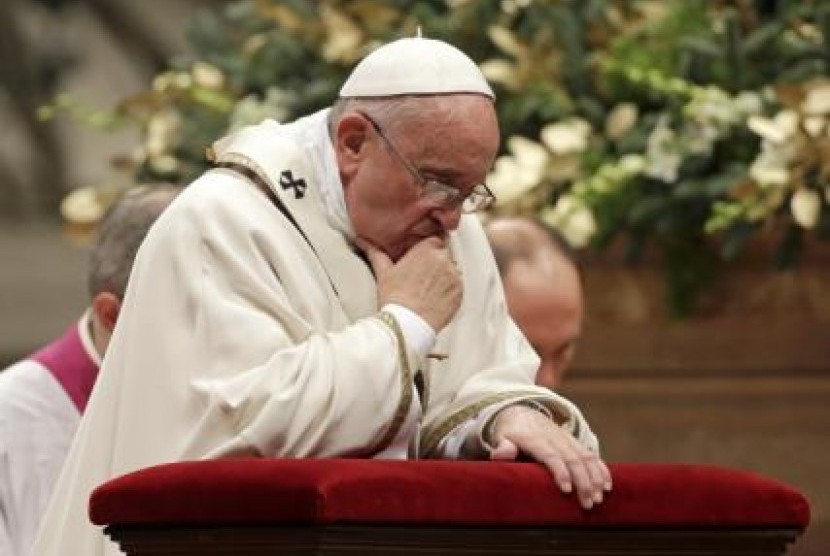REPUBLIKA.CO.ID, VATICAN CITY -- Pope Francis was to meet Palestinian President Mahmud Abbas on Saturday, days after the Vatican said it was preparing to sign its first accord with Palestine, drawing Israeli anger.
The meeting at the Vatican also comes a day before the pontiff is due to canonise two Palestinian nuns, who will become the first Palestinian Arabs to gain sainthood.
On Wednesday the Holy See announced that it was preparing to sign its first treaty with Palestine, two years after officially recognising it as a state.
A bilateral commission is putting the final touches to the agreement, on the Catholic Church's life and activities in Palestine, which then "will be submitted to the respective authorities for approval ahead of setting a debate in the near future for the signing," the Vatican said on Wednesday.
Some observers speculated that the agreement could be signed during Abbas's visit.
The news of the treaty immediately drew ire from Israel.
"Israel heard with disappointment the decision of the Holy See to agree a final formulation of an agreement with the Palestinians including the use of the term 'Palestinian State'," said an Israeli foreign ministry official.
"Such a development does not further the peace process and distances the Palestinian leadership from returning to direct bilateral negotiations. Israel will study the agreement and consider its next step."
The agreement, 15 years in the making, expresses the Vatican's "hope for a solution to the Palestinian question and the conflict between Israelis and Palestinians according to the Two-State Solution," Antoine Camilleri, the Holy See's deputy foreign minister, said in an interview earlier this week.
In an interview with the Vatican's Osservatore Romano newspaper, Camilleri said he hoped "the accord could, even in an indirect way, help the Palestinians in the establishment and recognition of an independent, sovereign and democratic State of Palestine."
The Palestinian Authority considers the Vatican one of 136 countries to have recognised Palestine as a state, although the number is disputed and several recognitions by what are now European Union member states date back to the Soviet era.


